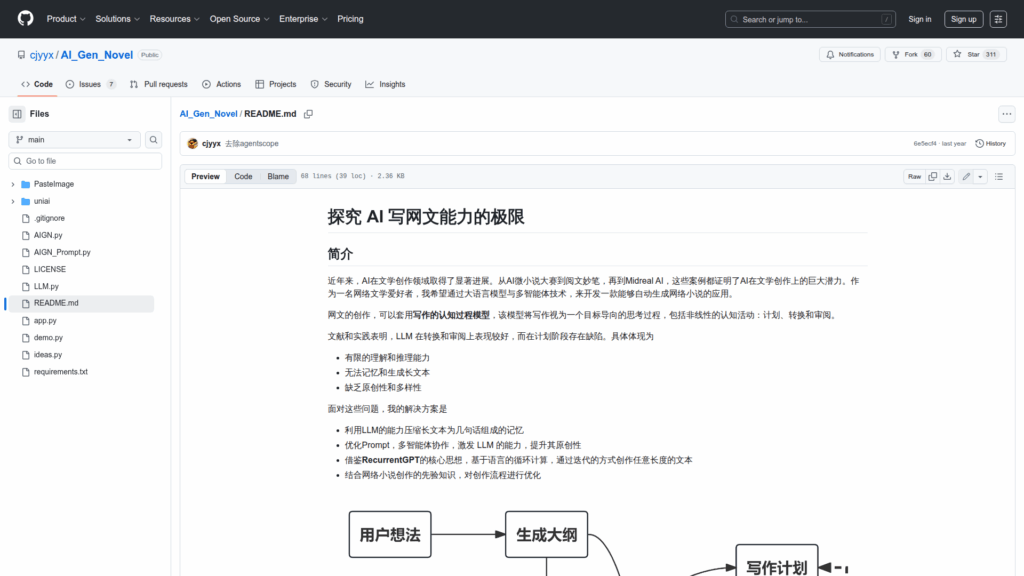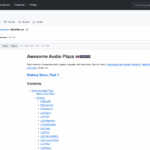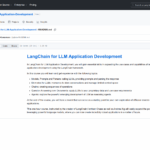AI_Gen_Novel
Basic Information
This repository explores the limits of AI for writing long-form online novels by combining large language models and multi-agent techniques. It documents motivations, design ideas and a prototype application that aims to automate web-novel generation using a cognitive writing-process model: planning, translating and reviewing. The project addresses known LLM weaknesses in planning, long-memory and originality by compressing long text into short memory representations, optimizing prompts, and orchestrating multiple agent roles. It adopts the core idea of RecurrentGPT to iteratively generate arbitrarily long text through language-based recurrent computation and applies domain priors for web-novel structure. The README concludes that current LLMs are not yet sufficient for full-length novels and outlines future needs such as longer context windows, stronger reasoning, and human-evaluated RL training.








